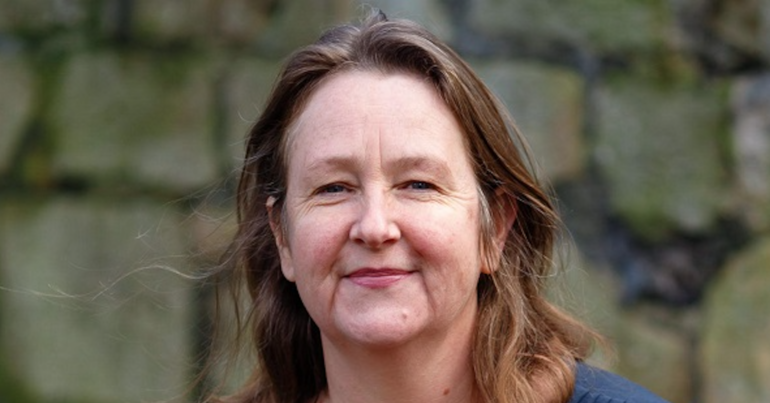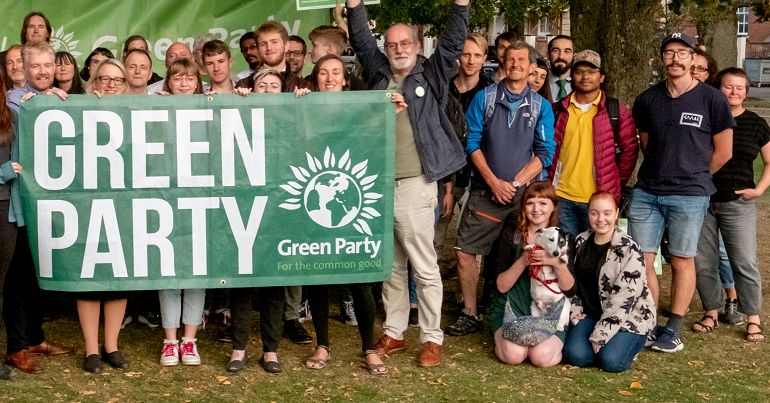Interview with Zoe Nicholson – Elections Co-ordinator candidate for GPEx
 Throughout August, members of the Green Party for England & Wales will be voting to elect members of the next Green Party Executive (GPEx). In all, members will vote to determine which representatives will carry out eleven different roles – including that of leader and deputy leader. There is also a ballot to determine who will be the party’s third member in the House of Lords should the party be asked to put forward another peer.
Throughout August, members of the Green Party for England & Wales will be voting to elect members of the next Green Party Executive (GPEx). In all, members will vote to determine which representatives will carry out eleven different roles – including that of leader and deputy leader. There is also a ballot to determine who will be the party’s third member in the House of Lords should the party be asked to put forward another peer.
Zoe Nicholson (current GPEx management co-ordinator) is standing for the role of elections co-ordinator. This month, she will face the job share team of Kai Taylor (Knowsley councillor) & Claire Stephenson (Lancashire-based journalist and Green Party activist), Louis Williams (Bristol-based Green Party activist), and the job share team of Laurie Needham (Leicestershire councillor) & Joe Levy (Exeter-based Green Party activist) in the running for the role.
We asked each of the candidates five questions on their background and what they would seek to achieve on GPEx. Here are Zoe’s responses.
What do you think are the main challenges currently facing the Green Party, and how would you work to overcome them?
There are lots of challenges including our size, media presence and resources, but I’m going to focus my answer on a critical issue for us: election strategy. We have a proven election winning strategy for local elections. If local party’s are supported to use this strategy it works, and we know this from the evidence of 2019. Currently, we are not aligned and resourced in General Elections, and we struggle to implement what we know works to win more parliamentary seats. We need a clear strategy, based on data on how to increase our core vote, target the most promising constituencies, and execute this plan with precision and ambition. That’s why I am standing for elections co-ordinator to make that happen for 2024.
What skills do you bring that would make you an effective member of the executive?
I’ve done 2 years already on GPEx, and am under no illusion about how hard it is, how easy it is to get distracted by the “politics” and how ambiguous our governance and power structures are. Securing resources and focusing on winning elections is actually harder than you think in this political party. If we want the national party to support local parties to win, then we need someone who already knows how this works and doesn’t have to spend 2 years working it out (by which time it would be too late to win another MP or two in 2024, and the biggest elections of the last 10 years will be over). I have worked with the staff team, who are amazingly skilled and dedicated, who need an elections coordinator who is going to champion and focus on getting the resources we need. They are not short of ideas and experience, but they need a more non-executive type role, who will work as part of the team with others on GPEx and GPRC to co-design and lead our electoral strategy development.
What experience in election campaigning do you bring to the executive?
I’ve been campaigning for 3 years, have won 10 district council seats and lots of town council seats, and have fought a successful general election campaign. I am a campaign school alumni from 2017. We tripled our councillors in 2019, bringing us into control of the council with other parties. I have been leader of the council for a year and now deputy leader.
What do you think should be the Green Party’s primary electoral objectives for the next five years?
I’m coy about putting this out in the public domain, not because I don’t think we should say it out loud but because we don’t want the opposition to know what we are thinking, as it shows our weaknesses as well as our targets. So here is my general view:
We need to maximise our effort for 2021, doubling our councillors in local elections. We should target seats in the Senedd. Our mayoral campaigns in Bristol and London bring us national coverage and build capacity and capability, though they are different styles of campaigns. Given COVID-19 we need to learn how to win elections that rely less on door knocking. Our main focus needs to be on targeted constituency identification, and data analysis on the demography and strategy for the 2024 general elections.
What do you see as the biggest flaws in the Green Party’s current election strategy?
We have a winning strategy for local elections, but its weakness is in the focus of resources. This means that our performance locally is amazing but inconsistent nationally; some local parties use the strategy, and other do not use it at all. Our general election strategy is weak and unarticulated.
This interview is part of a series with each of the candidates in this year’s GPEx elections. You can find Bright Green’s full coverage of the elections here.
PS. We hope you enjoyed this article. Bright Green has got big plans for the future to publish many more articles like this. You can help make that happen. Please donate to Bright Green now.




Leave a Reply